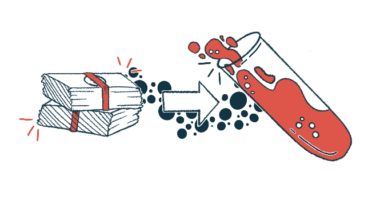Via Orphan Drug Grant Program, FDA Funds New ALS Research
New ALS projects focus on developing better treatments for patients

The U.S. Food and Drug Administration (FDA) is funding several novel research projects related to amyotrophic lateral sclerosis (ALS) and other rare neurological disorders through its orphan drug grants program.
In total, the regulatory agency has awarded 19 new grants and two contracts, providing more than $38 million in funding over the next four years. The two contracts and one of the grants are focused on ALS, supporting the Accelerating Access to Critical Therapies for Amyotrophic Lateral Sclerosis Act (ACT for ALS), legislation enacted in late 2021.
The ACT established the Rare Neurodegenerative Disease Grant Program, which aims to provide funding for projects that seek to improve care for ALS and other rare neurological diseases.
“One of the greatest obstacles facing individuals who suffer from rare diseases is the limited treatment options currently available,” Robert M. Califf, MD, the FDA commissioner, said in a press release from the agency.
The FDA noted that it had received 33 applications for clinical trial grants in this funding round.
Funding for rare disease research
“These grants provide important funding to researchers who are working to develop better treatments for rare disease patients,” said Sandra Retzky, a doctor of osteopathic medicine and the director of the FDA’s Office of Orphan Products Development.
“Since the beginning of the Orphan Products Grants Program in 1983, it has facilitated the approval of more than 80 rare disease products,” Califf said, adding, “Through this and other efforts focused on rare diseases, the FDA continues to advance the development and evaluation of safe and effective medical products that help address patients’ unmet needs.”
One of the contracts awarded by the FDA will focus on brain-computer interface (BCI) devices in ALS. As their name implies, BCI devices work by connecting a person’s brain with a computer, allowing researchers to decode messages from people who are no longer able to communicate verbally or through movements.
The FDA is particularly interested in devices that can help people with ALS communicate even when they are not able to move or speak on their own.
The grant will support a review of scientific literature to assess the current state of knowledge about BCI devices.
A second contract, co-funded by the FDA and the National Institutes of Health (NIH), will assess whether a physical assessment of ALS patients that’s usually done in a clinician’s office can be performed remotely at home. Remote assessments could reduce the burden of care on patients and their caregivers by cutting down on trips to a hospital.
Such home assessments also might make it easier to conduct future clinical trials in ALS.
In addition to these contracts, the FDA has funded eight new grants for natural history studies — studies that aim to assess how a disease progresses without medical intervention. One of these studies, co-funded by NIH, focuses on ALS.
According to the FDA, this trial “has the potential to advance existing knowledge of the natural history of ALS, inform drug development and possibly support future regulatory decisions.”
The FDA also announced funding of grants to support 11 clinical trials testing new therapies, mostly in rare types of cancer.
An orphan drug designation can be awarded by the FDA for medications that treat rare diseases, defined in the U.S. as affecting fewer than 200,000 people. This designation provides tax incentives and marketing exclusivity that aim to speed the development of such treatments.







